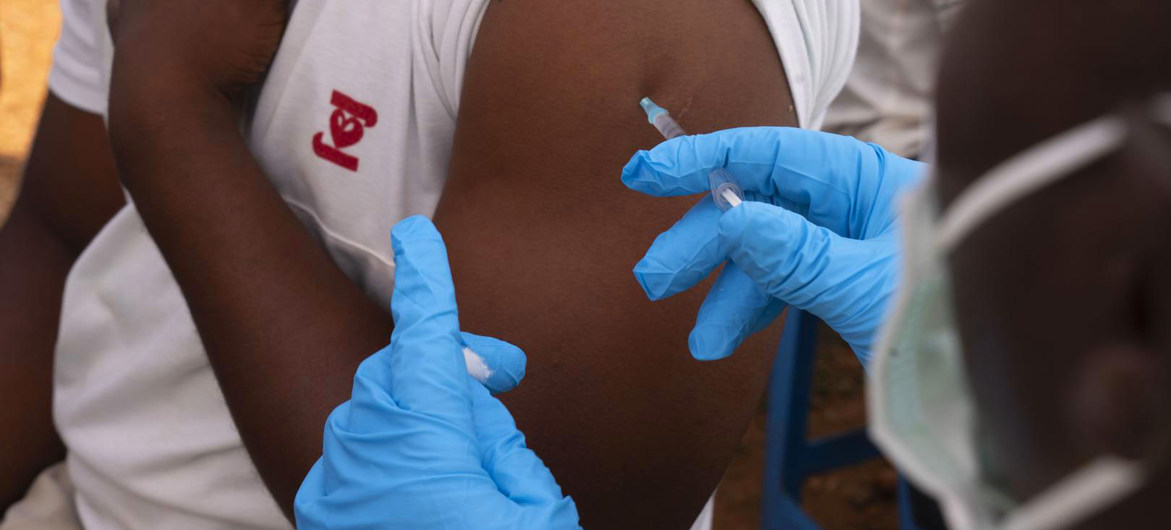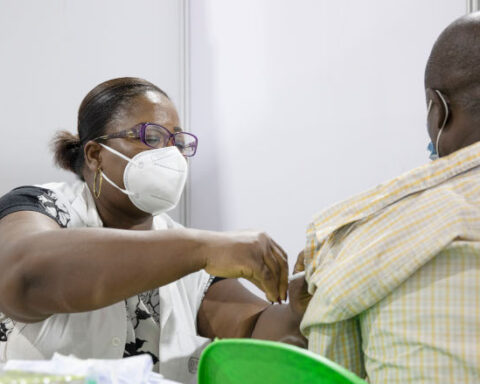COVID-19 vaccination will help protect you from getting COVID-19. You may have some side effects, which are normal signs that your body is building protection. These side effects may affect your ability to do daily activities, but they should go away in a few days. Some people have no side effects.
Common side effects
On the arm where you got the shot:
Throughout the rest of your body:
Helpful tips
Talk to your doctor about taking over-the-counter medicine, such as ibuprofen, acetaminophen, aspirin, or antihistamines, for any pain and discomfort you may experience after getting vaccinated. You can take these medications to relieve post-vaccination side effects if you have no other medical reasons that prevent you from taking these medications normally.
It is not recommended you take these medicines before vaccination for the purpose of trying to prevent side effects.
To reduce pain and discomfort where you got the shot
To reduce discomfort from fever
If you received a second shot
Side effects after your second shot may be more intense than the ones you experienced after your first shot. These side effects are normal signs that your body is building protection and should go away within a few days.
When to call the doctor
In most cases, discomfort from pain or fever is a normal sign that your body is building protection. Contact your doctor or healthcare provider:
- If the redness or tenderness where you got the shot gets worse after 24 hours
- If your side effects are worrying you or do not seem to be going away after a few days
If you get a COVID-19 vaccine and you think you might be having a severe allergic reaction after leaving the vaccination site, seek immediate medical care by calling 911. Learn more about COVID-19 vaccines and rare severe allergic reactions.
Remember
- Side effects can affect your ability to do daily activities, but they should go away in a few days.
- The Pfizer-BioNTech COVID-19 Vaccine and Moderna COVID-19 Vaccine both need 2 shots in order to get the most protection. You should get the second shot even if you have side effects after the first shot, unless a vaccination provider or your doctor tells you not to get it.
- You only need 1 shot of the Johnson & Johnson’s Janssen (J&J/Janssen) COVID-19 Vaccine to get the most protection. Learn more about the different COVID-19 vaccines.
- It takes time for your body to build protection after any vaccination. People are considered fully vaccinated two weeks after their second shot of the Pfizer-BioNtech or Moderna COVID-19 vaccine, or two weeks after the single-dose J&J/Janssen COVID-19 vaccine. You should keep using all the tools available to protect yourself and others until you are fully vaccinated.
- After you are fully vaccinated for COVID-19, you may be able to start doing some things that you had stopped doing because of the pandemic. Learn more about what you can do when you have been fully vaccinated.
- We are still learning how vaccines will affect the spread of COVID-19. After you’ve been fully vaccinated against COVID-19, you should keep taking precautions in public places like wearing a mask, staying 6 feet apart from others, avoiding crowds and poorly ventilated spaces, and washing your hands often. CDC will continue to update recommendations as we know more.






